Due to the growing popularity of caffeinated drinks marketed to teenagers, many parents, teachers and coaches are concerned about the use of caffeine sport drinks for teen athletes. Caffeine is an ergogenic aid that has athletic performance benefits, side effects, risks and recommendations for responsible consumption in sports.
What is Caffeine?
Caffeine is a stimulant that speeds up your central nervous system.
Where is it found?
Caffeine is naturally found in coffee, tea and cola soft drinks. Caffeine is also added to various types of athletic drinks marketed to teenagers including energy drinks, electrolyte drinks and pre workouts.
What are the Types of Caffeine Sport Drinks for Teen Athletes
1. What are Sport Drinks?
Sport drinks:
- Contain carbohydrates (sugar) to fuel vigorous exercise that lasts well over an hour.
- Contain electrolytes like sodium and potassium, to keep you hydrated when you are sweating excessively over several hours.
- Do not typically contain caffeine.
- The most common sport drink is Gatorade Thirst Quencher.
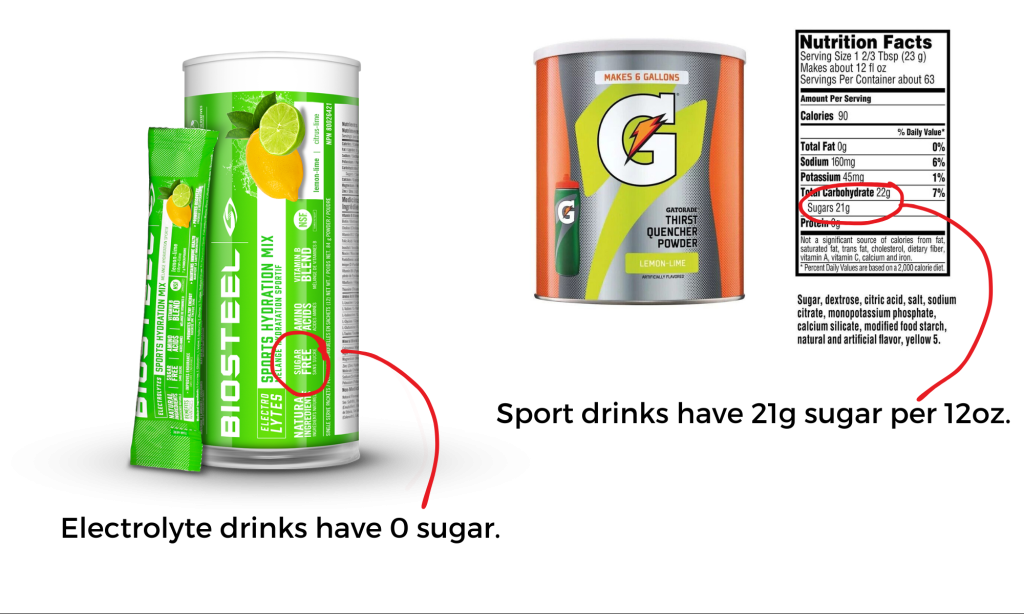 2. What are Electrolyte Drinks?
2. What are Electrolyte Drinks?
Electrolyte drinks:
- Do not contain carbohydrates or sugar and will not give you energy.
- Contain electrolytes like sodium and potassium to keep you hydrated when you are sweating excessively over several hours.
- Sometimes contain caffeine too, check the label!
- Popular electrolyte drinks include Nuun and Biosteel.
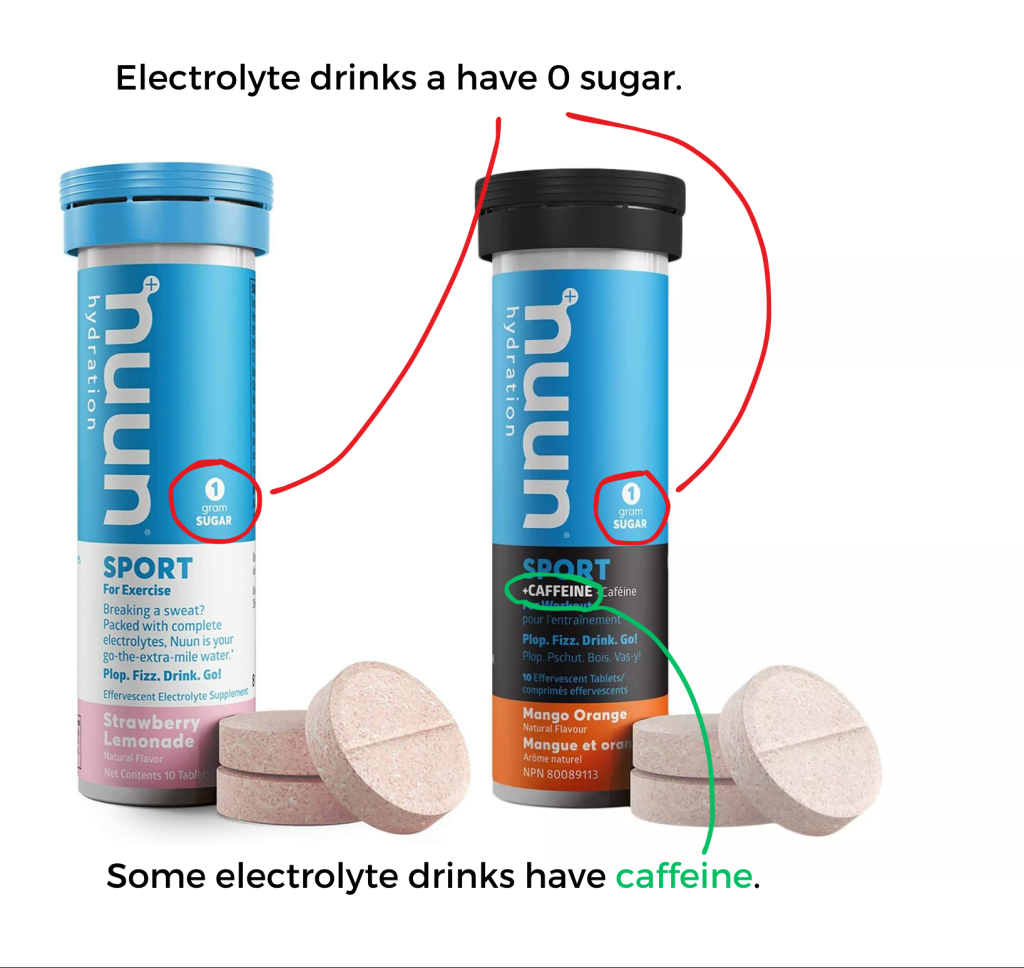 3. What are Pre Workout Drinks?
3. What are Pre Workout Drinks?
Pre Workout drinks:
- Contain high amounts of caffeine.
- May contain creatine. Read this article on creatine use in youth.
- May contain Beta alanine, probably not in the doses required to work.
- May contain Branched chain amino acids (BCAA). BCAAs may prevent muscle breakdown during exercise and promote muscle building after exercise. But you can get your fill of BCAAs in your pre workout snack or recovery snack such as smoothie, eggs and toast or yogurt and fruit.
- Meant to boost your energy for your workout, but they do so simply with caffeine.
- A common preworkout is C4.
4. What are Energy Drinks?
Energy drinks:
- Contain high levels of caffeine.
- Either contain no sugar or high levels of sugar, in amounts similar to soft drinks.
- Energy drinks claim to boost energy, decrease fatigue and enhance concentration.
- Energy drinks are not designed for sports as they do a terrible job of hydration, since the high concentration of sugar reduces fluid absorption and hydration.
- The most common energy drink is Red Bull.
Health Canada regulates the maximum allowable level of caffeine in energy drinks to 150mg caffeine per litre for non cola drinks and 200mg caffeine per litre of cola drinks. In fact, on August 30 2023, Health Canada recalled 27 caffeinated energy drinks for not meeting their standards, including the highly caffeinated version of Prime Energy drink.
What is the Difference?
The crazy confusing thing is brands like Gatorade and Prime often carry products in every category including the sport drink, electrolyte drink, pre workout and energy drink categories. The consumer must read labels so carefully to make sure they know what they are drinking. As an example, all of these products are made by Gatorade:
- Sport Drinks: Gatorade Thirst Quencher, Gatorade Endurance Formula
- Energy Drink: Fast Twitch Gatorade Energy Drink
- Electrolyte Drinks: Gatorlyte, Gatorade Zero, Gatorade Fit, Propel
- Pre Workout: Fast Twitch Caffeinated Pre Workout
Table 1. Compare Different Caffeine Sport Drinks for Teen Athletes
| What is it? | sugar | sodium | caffeine | Check the Label | Brands | When to Use it |
| Sport Drink | ✔ | ✔ | ❌ | Contains about 36g carbohydrate per 600ml serving for hydration and fuelling. | Gatorade Thirst Quencher
Powerade |
During endurance sports over 90minutes long e.g. tournament |
| Electrolyte Drink | ❌ | ✔ | ❔ | 300mg Sodium per 600ml serving for hydration.
No carbohydrates. Check for caffeine! |
NUUN sport
Biosteel hydration mix |
During exercise in the heat to replace heavy sweating. |
| Energy Drink | ❔ | ❌ | ✔ | Contains 150-200mg caffeine per serving.
Contains either LOTS of sugar or no sugar. |
RedBull Energy drink | Terrible for hydration, so do not use it during sport. |
| Preworkout | ❌ | ❌ | ✔ | Contains 100-200mg caffeine per serving.
No carbohydrates. No sugars. |
C4 Preworkout | It’s about the same as having a coffee before a workout. |
How Much Caffeine Do Children Consume?
According to the National Health and Nutrition Examination Survey (NHANES), over 75% of children and adolescents consume caffeine regularly. Popular caffeine sources include soda, coffee, tea and energy drinks. Average consumption of caffeine amongst children and adolescents is 25-50mg/day however some energy drinks have 127 mg of caffeine in one can! (Arizona Energy drink)
Effects of Caffeine on Sport Performance
Caffeine might be useful for young athletes looking to gain a competitive edge by helping them maintain focus or for athletes who struggle to maintain a high intensity in latter stages of a game.
Mental Performance Effects:
- Mental Alertness and Focus
- Mental Attention and Memory
- Less Pain: reduce perceived exertion [makes endurance exercise seem easier]
Physical Performance Effects:
- Increases muscular endurance, strength, sprint, throwing, jumping
- Mask feelings of fatigue or perceived exertion during exercise
- More energy: increases time to fatigue, improve time trial performance
Which Sport Events Benefit:
- Sports that require aerobic endurance e.g. team sports, long races, tournaments
- Sprint events e.g. swimming, cycling, running
The vast majority of research on the performance effects of caffeine has been in adults. Early studies suggest that young athletes have similar performance effects including sprinting, jumping, running and lower rates of perceived exertion. However, the effects of caffeine on adolescent athletes have not been well studied.
How Does Caffeine Work?
Essentially, caffeine elevates arousal and makes intense endurance exercise seem easier. On a cellular level, caffeine counteracts the effects of adenosine on arousal, and pain perception.
There are a few other possible mechanisms by which caffeine may work:
- Caffeine may alter the release or uptake of calcium by the sarcoplasmic reticulum and lead to longer and stronger muscle contractions, which leads to sustained endurance.
- Caffeine increases fat burning through the mobilization of fat, which slows the use of your limited carb stores and delays fatigue.
- Caffeine stimulates nitric oxide and has a vasodilator effect, increasing blood flow to muscles
- Caffeine may increase breathing inhalation volume, according to one study
Dose and Timing of Caffeine for Sport Performance
International society of sports nutrition position stand on caffeine and exercise performance recommends 3-6 mg/kg taken about 40-60 minutes before exercise, for adult athletes. However, it must be highlighted that this dose was based on research in adults and would be exceedingly high for youth who are not habituated caffeine users.
- Caffeine is rapidly absorbed in the blood within 5 –15min, and peaks within 45–90 min (half-life 180–300min).
Bearing on the side of caution, adolescents and youth should not exceed the recommendation set out by the American Academy of Paediatrics and the Canadian Paediatric Society.
Maximum Limit of Caffeine for Youth
Health Canada‘s recommended maximum caffeine intake for children up to age 18 is 2.5 milligrams per kilogram of body weight. This equals 113 mg caffeine for a 45kg (average 13 year old male) and 160mg caffeine for 65kg (average 17 year old male).
The American Academy of Paediatrics recommends that caffeine intake for adolescents be limited to no more than 100mg per day.
The Canadian Paediatric Society position statement has warned children and youth to avoid sweetened and caffeinated drinks. Pediatricians are concerned that the high levels of caffeine and sugar in energy drinks are harmful to children, potentially leading to dental cavities, obesity and heart conditions. Kids are particularly susceptible to side effects of caffeine because of their smaller body size.
Pediatricians warn that caffeine should not be given to children under the age of 12 years old.
Psychologically Side Effects of Caffeine on Kids:
- panic attacks
- irritability
- increased anxiety
- palpitations
- restlessness
- headache
- difficulty sleeping
- stomach upset
Sleep Disruption
One of the most significant concerns surrounding caffeine use in children and adolescents is its impact on sleep. Caffeine is a powerful stimulant that can interfere with the natural sleep-wake cycle, leading to insomnia and daytime drowsiness. We know that having a regular sleep cycle is critical for adolescents to regulate their hormone levels, mood and to optimize learning.
Habit Forming and Withdrawal
Regular caffeine consumption can lead to tolerance and dependence. When individuals try to reduce or quit caffeine, they may experience withdrawal symptoms such as headaches, irritability, and fatigue.
Physical Side Effects of Caffeine Withdrawal:
- Headache
- Fatigue
- Drowsiness
- Depressed mood
- Difficulty concentrating
- Irritability
- Feeling foggy
Are Caffeine Sport Drinks Recommended for Teen Athletes?
Diet & Sleep First Approach
As with any ergogenic aid, supplements should only be considered after the diet, sleep and sport nutrition strategies like fueling, hydration and recovery have been mastered first. If an athlete needs an energy drink or caffeine gel before their game, then their recovery strategies have not yet been optimized. Remember, ergogenic aids impact performance in seconds, while sport nutrition impacts performance in minutes.
Caffeine is not a shortcut to high performance.
How you sleep and what you eat for your regular meals and snacks before, during and after training will give your best performance. For more information on how athletes can get energy for their practices and games without caffeine, check out this blog post: Top 3 Mistakes Young Athletes Make.
Caffeine as an Ergogenic Aid
If sport nutrition is already optimized, a teen athlete may want to try a moderate dose of caffeine before a race, game or during long tournament. As with any changes to your routine, try it first in practice, before you try it in a game. You want to know how something makes you feel and what works for you.
Caffeine Dependence
Remember that caffeine is habit forming and will cause symptoms of withdrawal, if used regularly. There are certainly more risks than benefits to daily caffeine use in adolescents and this should be discouraged.
Caffeine Sensitivity
Many competitive athletes don’t like to rely on caffeine as the side effects can negatively impact their wellbeing. We must remember that individuals may react differently to caffeine. Non habituated users will be more sensitive to the effects of caffeine. Pay attention to how caffeine affects each adolescent individually.
The Bottom Line
As with any sport supplement, get the advice of a registered sports dietitian first, to make sure your athlete is optimizing their sport nutrition and recovery routines. Talking to an expert often makes a big difference in motivating your teen to organize their fuelling and hydration routines.
Caffeine use in children and adolescents is a topic that requires careful consideration. Caffeine should only be considered for those aged 16 and over and any supplements used must be recognized and approved by Informed Sport. While there are potential benefits, it’s crucial to weigh these against the associated risks. Educating young athletes about responsible caffeine consumption, monitoring their intake, and considering individual variability can help ensure they make good choices. Ultimately, we should focus on overall nutrition, diet, sleep, hydration and recovery routines.
Frequently Asked Questions
Is caffeine banned in any sports?
- No, caffeine is permitted in sports governed by the World Anti-Doping Agency (WADA)
Are there safe caffeinated drinks for young athletes?
- There is no safe amount of caffeine for children under the age of 12years old.
- While pediatricians discourage teens from using caffeine, they say that up to 100mg caffeine can be safe for teenagers.
Does caffeine stunt growth in young athletes?
- Although caffeine does not stunt growth, it can interfere with sleep which has a negative impact on the growth and development of adolescents.
Will caffeine help before games and tournaments?
- Caffeine can improve mental alertness, focus, muscular endurance, strength, sprint, throwing, jumping and reduce fatigue during exercise. However, side effects include anxiety, irritability, headache, difficulty sleeping and stomach upset.
Take the Sport Nutrition Course for Parents.
Learn what snacks to have in the hours and minutes before a game and what snacks are best after practices and games. Get simple fueling strategies to help your athlete build muscle and perform their best. Includes exclusive lists of best sport snacks, recovery snacks, lunch ideas and meal plans for your youth athlete.


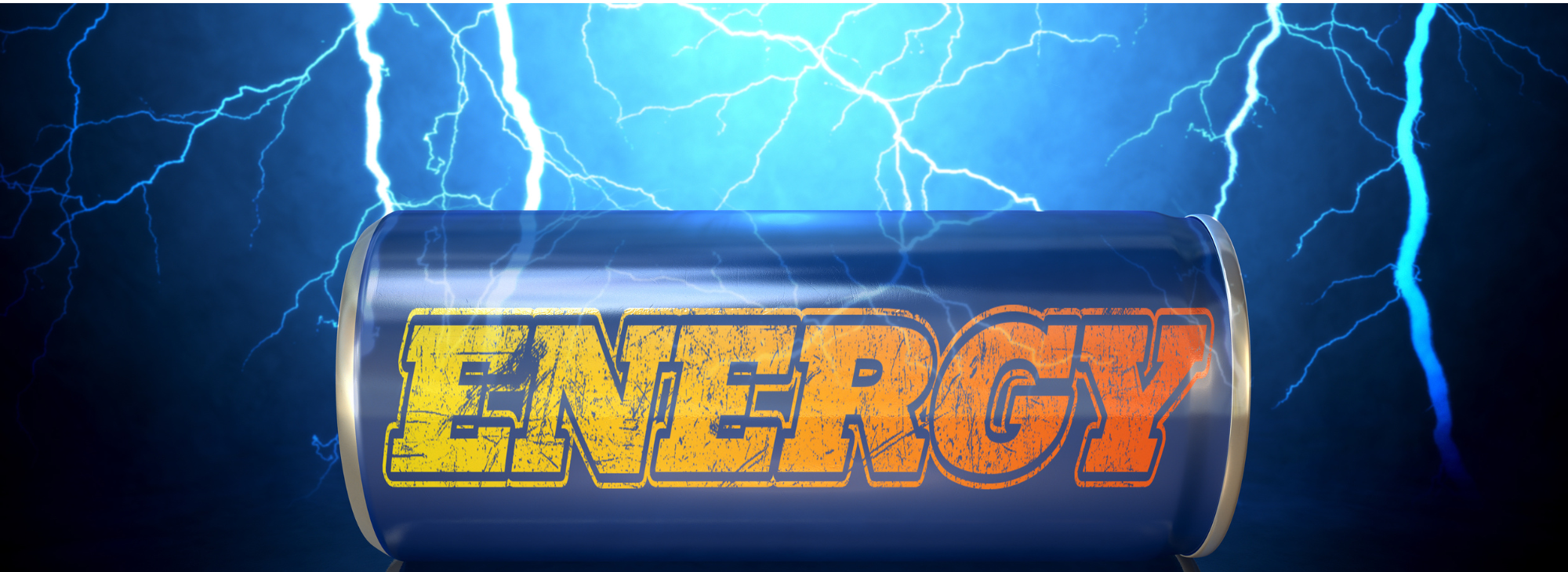
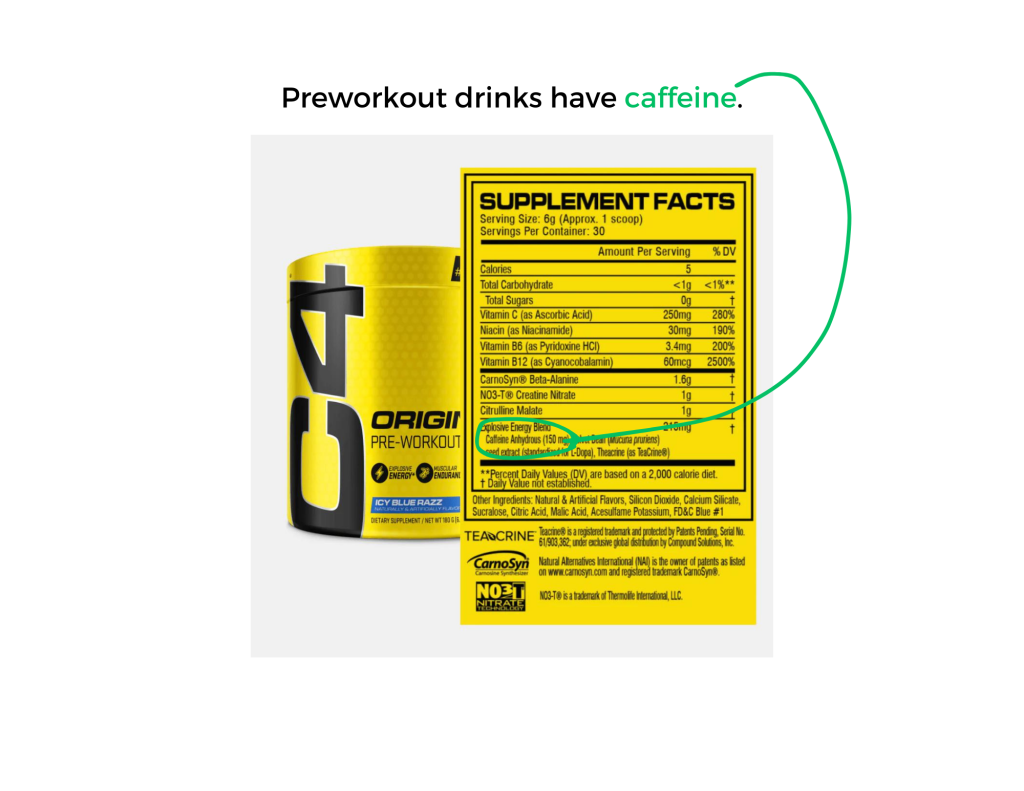
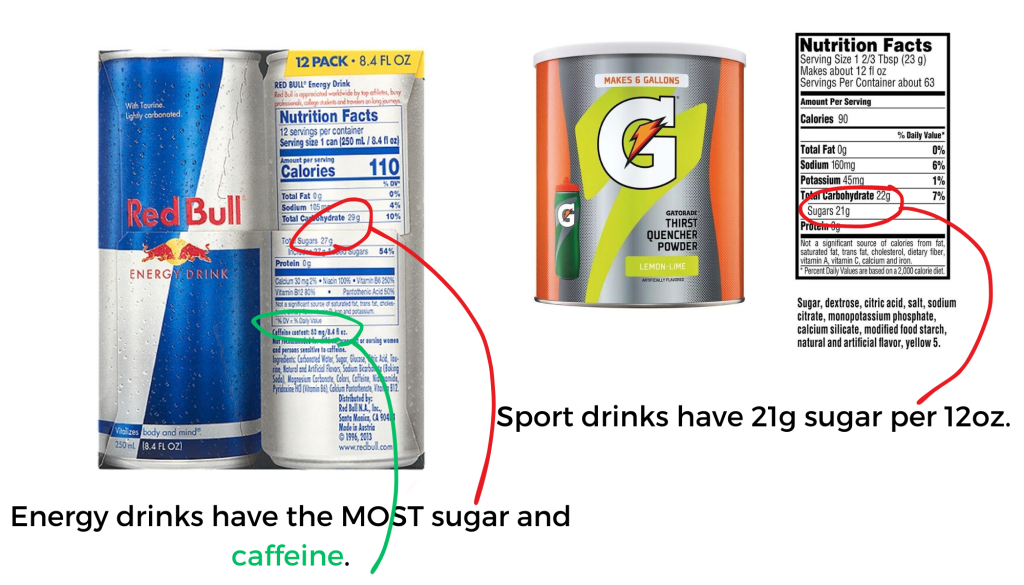
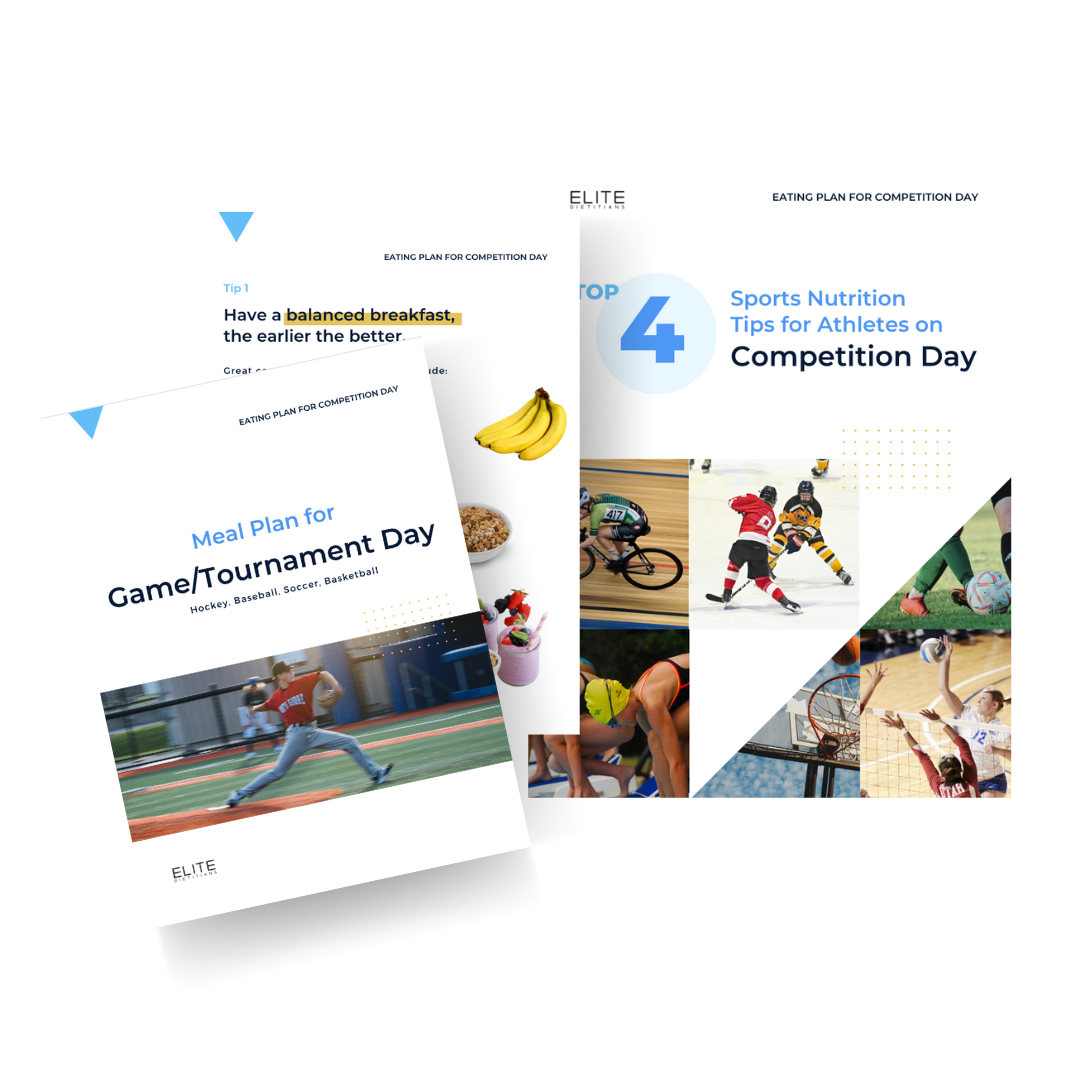


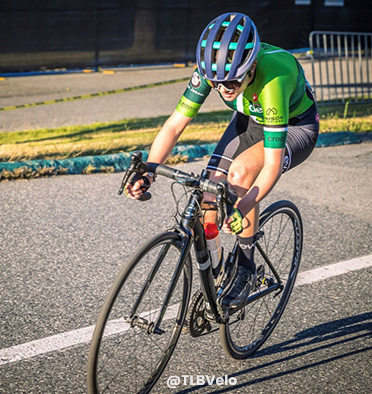


85 Comments